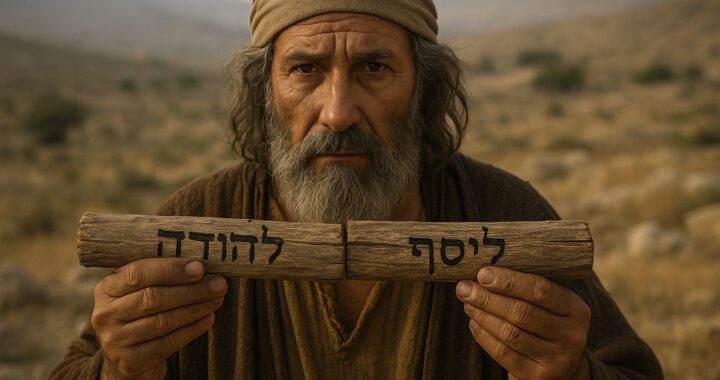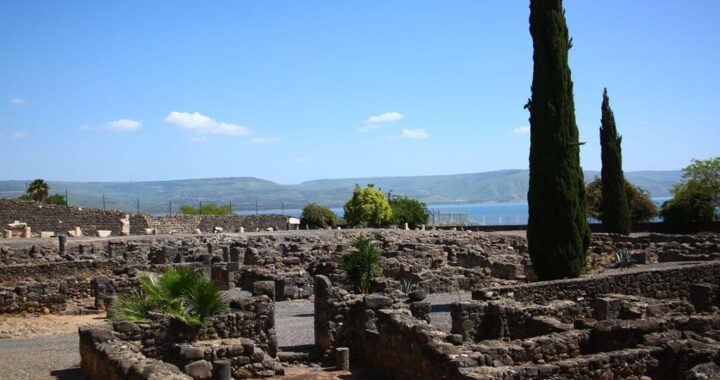No one says “Schenectady” quite like someone who spent their formative years in that part of New York. I still love to hear it roll off the tongue of my theology professor and friend, Dr. Myron J. Houghton.
Not only does Schenectady, New York, have a pleasant ring—it also has a significant history. While you may not find it in most history books, it is the place that God reached into the Houghton family with His saving grace. Twin brothers Myron and George came to saving faith in Christ through the gospel witness of a neighborhood Bible club.
It was there in Schenectady, in a nearby church, that God began to form young Myron’s thoughts about God and His Word—what Dr. Myron would later call “my theology” in the opening section of his systematic theology notes. As his students know, however, the characteristics of his theology were forged by more than just a backyard Bible club. Though one could credit his eleven different degrees and certificates from ten different institutions for his distinguished understanding of theology, it is actually his skillful exegesis of Scripture that defines his theology and pedagogy.
During his days at Moody Bible Institute in the 1960s, God developed in him a passion for ministry and theology. An avid reader and lover of books, education was a natural fit for him. So he studied, and learned, and read. It is important to note, however, that in all his studies, he did not lose sight of the ministry. What good were books and learning without the opportunity to minister the Word to people in desperate need of a right understanding of Scripture, and a right relationship with God? It was during his graduate studies at Central Baptist Theological Seminary in Minneapolis, in May of 1966, that Faith Baptist Church of St. Paul ordained him for the gospel ministry. From that point on, the roads would never be the same. As he likes to tell his nervous passengers, with that classic grin on his face: “They don’t call me ‘Rev.’ for nothing.”
It wasn’t until 1971—the same year he graduated with his first doctorate from Dallas Theological Seminary (and, notably, an M.L.A., from Southern Methodist University)—that Dr. Myron began to occupy the seat on the “other side” of the classroom. That year he joined the faculty of Denver Baptist Bible College. It certainly was not the end of his days as a student, but it was the beginning of a monumental career as professor. “Coincidentally,” that year also marked Dr. Myron’s introduction to the Augsburger family—a connection for which I am deeply grateful. Dr. Bryce Augsburger, my grandfather, was serving as President of DBBC at that time, and his son Bernie was also on the faculty there. It just so happened that Myron and Bernie were both bachelors and struck up a vibrant friendship, which has continued to the present day.
For nearly five decades, Dr. Myron would continue to teach and learn. Five decades. In 1983, just before DBBC merged with Faith Baptist Bible College, he joined the FBBC faculty. Though he has transitioned to teaching primarily in the seminary (FBTS), Dr. Myron continues to teach at FBBC&TS in anticipation of his retirement at the end of this 2018–2019 school year. In his years of teaching after 1971, he would receive four more degrees, including an earned Th.D. and an honorary doctorate. As his students liked to joke, it seems he knows more about Catholic, Methodist, Lutheran, and Orthodox theology (not to mention Baptist theology) than any of us know about our own Baptist theology. A pedigree that robust makes an individual exceptionally qualified to teach. But it is not just the pedigree that makes Dr. Myron a distinguished, often favorite, professor.
For some, it is his eccentricities: the fact that, at any given moment, he might pull a foam dart gun out of the drawer and fire it at drowsy students, or that he keeps books in his oven, or that when they call his home with theology questions they find they reached either the “Ayatollah of Ankeny” or “Houghton’s Mortuary: you stab ’em, we slab ’em.” For others, it is his quick wit. Few students dare challenge his pun-prowess. He has a response for just about everything.
It was my own love for puns that precipitated our connection. During my senior year of high school, our youth group visited Faith Baptist Bible College. Somehow, we connected with Dr. Myron at the local Village Inn. True to form, he was showing us a trick with a dollar bill that would turn George Washington’s profile into a mushroom. I responded that it appeared that President Washington must have been a pretty fun guy (fungi). Dr. Myron exclaimed his classic laugh, and we struck up a friendship. A few months later, during my freshman year at FBBC, he invited me out for dinner—a weekly appointment that would continue for the next 16 years. In fact, I’ll leave shortly to meet him for dinner tonight. I share that, not so that you will sympathize with me over the fact that I have eaten so many meals at Village Inn, but rather so that you might sense his propensity for relationships.
As a single man, he was accustomed to eating out. As a relational professor, he was intentional about inviting students to join him. Hundreds of students through the years can attest to his hospitality and care in this way. His goal? Good Christian fellowship. It was possible that theology would come up, but usually only if the student asked about it. Instead, Dr. Myron prefers to chat about life, ministry, and of course, any related puns. Through the years, Dr. Myron has enjoyed regular meals with students, colleagues, the local Catholic priest, a Greek orthodox friend, and countless others. He enjoys hearing what God is doing in his friends’ lives, and how he might pray for or help in such endeavors.
In my own assessment, it is that trait that makes him such a wonderful professor. He is, in his very core (and by God’s grace), a giver. He sees the needs of others, he cares, and he works to meet those needs. In the classroom, through the years, students can attest to the clarity and skill with which he walks through a text of Scripture. His explanations are textual, clear, accurate, and practical. Countless times, I came away from his class lectures or sermons thinking, “I get it! What a great passage; what an amazing God!” There may be no greater aim, nor feat, for a theology professor.
While reading and question-sets certainly aided in the students’ broader theological fluency (and added to the late nights), they were not the primary formative tool of Dr. Myron’s classroom. The clear explanation of the Word formed the students’ theology. Thus, a legacy of five decades of students have been shaped in their theology, not just by Dr. Myron J. Houghton, but by a right understanding of Scripture. He taught us how to read, study, think, and conclude. He forever shaped my understanding of law, Gospel, and grace. The clear distinction between God’s purpose for the law, and my standing (and resultant demands) under grace, affect my Bible study and preaching on a weekly, even daily basis. It is hard (maybe even impossible) to grasp the number of God’s servants ministering today that have been impacted by the teaching ministry of Dr. Myron.
When considering his legacy, it may be that many will remember the things he enjoyed. From maple-glazed, old-fashioned donuts to Sherlock Holmes, he enjoyed many things. Many will remember his generosity. Only he and the Lord truly know how many student mission trips, financial needs, building projects, crisis aid, and outstanding debt repayments he funded. He loves to give. But I think most will conclude that his legacy consists of his love for the Lord, his love for His Word, and his love for students of the Word. His legacy is seen in the hundreds, even thousands, of God’s servants who love the Lord, love His Word, and study His Word accurately, all the more for the time they spent with Dr. Myron J. Houghton.
There’s so much more I could say, but that’s all for now. I’m excited to get dinner with my friend.
Lance Augsburger
After graduating from FBBC&TS and serving in the Student Life Department as the Dean of Students, Lance Augsburger accepted the call to pastor Maranatha Baptist Church in Grimes, Iowa. He and his wife, Carrie, have served there since 2017.


